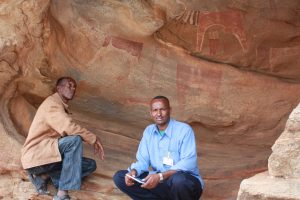The Knowledge-Centred Approach to the Somali Cultural Emergency and Heritage Development Assistance in Somaliland
Somalia has suffered a civil war since early 1991. Systematic looting, destruction and illicit excavation of sites continue without the international community (including academics, government organisations, heritage workers and humanitarian aid organisations) acknowledging this problem, let alone addressing it. The pre-war approaches to Somali cultural heritage lacked awareness-raising initiatives and basic dialogue with local communities, and hence remained uninformed about local views and methodologies regarding heritage. This has resulted in a lack of interest in building a local foundation and infrastructure for heritage management and archaeological research in the country. Today, it is clear that no measures were taken to protect cultural heritage during two decades of armed conflict in Somalia. Recently, archaeological material has become the target of ideologically motivated destruction. However, in post-conflict Somaliland, a self-declared, de facto country where there is peace and stability, possibilities for protection and management of cultural heritage exist. In order to carry out such work, an understanding of local practices is necessary. Hence, this paper presents unique research into local heritage management strategies and unveils indigenous heritage management methods, which the author refers to as the knowledge-centred approach. This approach emphasises knowledge and skill rather than objects, helping cultures such as the Somali, with strong oral transmission of knowledge, preserve their cultural heritage even in times of armed conflict. Also, this paper presents a critical assessment of the Somali cultural emergency as a whole and suggests ways of assisting different stakeholders in the protection of Somali heritage in the conflict and post-conflict areas.

Survey-officers Mahamed Ali Abdi and Ahmed Saalah Noor at the rock art site of Laas Geel
